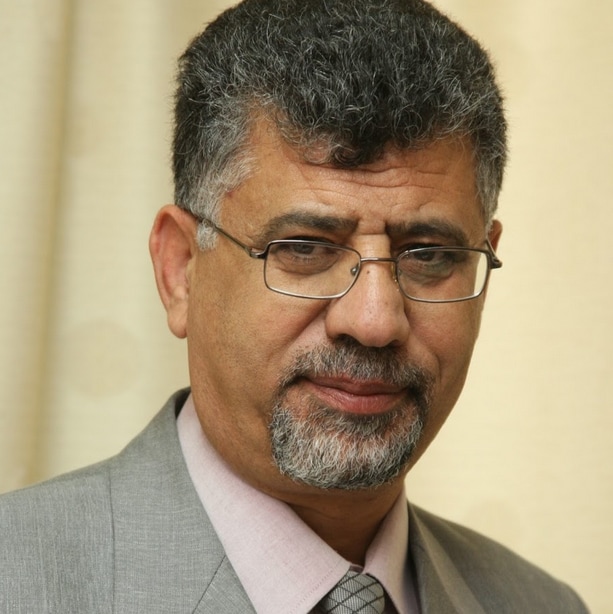by MEMRI
"When the government is in charge of religious [services] it wastes public funds, sets itself up as the people's patron and as the patron of their conscience and soul, and manufactures extremism and fanaticism".
In
an article in the London-based Arabic daily Al-Hayat, Jordanian journalist
Ibrahim Ghuraibeh came out against the religious establishments in Jordan and
other Arab countries. He wrote that Jordan and other Arab regimes spend
millions in public funds on employing full-time functionaries in the religious
sector, and that, by funding and sponsoring various religious institutions,
these regimes encourage and preserve the extremism that many of these institutions
promote.
He called for giving communities autonomy in the handling their religious affairs and for relying mainly on volunteers for providing religious services. This, he argued, will reduce extremism and save public funds, which can then be invested in improving people's standards of living.
The following are excerpts from the article:[1]
 Ibrahim Ghuraibeh (Image: Mominoun.com, October 15,
2015)
Ibrahim Ghuraibeh (Image: Mominoun.com, October 15,
2015)
"The Jordanian example can obviously be applied to all [Arab]
states, so we are talking of 1.5 million civil servants [throughout the Arab
world] who perform superfluous jobs, at an annual [cost of] 30 billion dollars.
[This money] could potentially be used to fund substantial achievements in the
domains of education, health and welfare, and in the development of arable
land, of [our] meagre water sources, and of cheap and minimally polluting
renewable energy [sources] – while at the same time automatically and
effortlessly eliminating extremism and hatred."
Endnotes:
He called for giving communities autonomy in the handling their religious affairs and for relying mainly on volunteers for providing religious services. This, he argued, will reduce extremism and save public funds, which can then be invested in improving people's standards of living.
The following are excerpts from the article:[1]
 Ibrahim Ghuraibeh (Image: Mominoun.com, October 15,
2015)
Ibrahim Ghuraibeh (Image: Mominoun.com, October 15,
2015)
"Jordan employs 50,000
full-time workers in the sector of religion, including university lecturers,
shari'a court judges and clerks, teachers of [Islamic] religion and culture in
schools, imams, muezzins, endowments [ministry] workers, jurisprudents,
and workers in non-governmental [religious] associations.
"In
practice, there is no need for more than 1,000 full-time lecturers and judges,
and even that is a lot. Society can provide volunteers to perform the roles of
teachers, imams, preachers and jurisprudents, and there is no need for
full-time employees.
[Alternatively], society can employ a small number of
full-time workers, whose wages will be paid out of the community's income, not
public funds. There is need for [only] one academic college that will offer
four tracks of study and award degrees in them: Muslim law and jurisprudence...
general religious education... religious studies, including philosophy,
sociology, and culture... and professional training for imams, preachers and
jurisprudents.
"Religious
education and activity will not be affected one whit if government religious
posts are abolished. They will not suffer or be in any kind of danger, because
local communities can manage, plan and organize their own religious affairs,
spending far less than the government but producing better [results in terms
of] quality, [client] satisfaction and suitability [to the client] than the
state authorities.
"The
[services] provided by the official religious institutions can be better
provided by other qualified [state] institutions, such as the courts... The
Finance Ministry and municipalities can manage, use and administer the
religious endowments and their funds, just as they handle the state's funds and
assets.
"When the
government is in charge of religious [services] it wastes public funds, sets
itself up as the people's patron and as the patron of their conscience and
soul, and manufactures extremism and fanaticism. If the state stops fulfilling
[this] role in religion, extremism will lose most, if not all, of its financial
and ideological sources and its safe havens. [At the same time,] moderate
religious trends that meet the people's needs will develop, as well as
religious organizations and methods that will realize people's spiritual
aspirations, [like] the Sufi orders and various [religious] social movements
that operated throughout history. [Independent] religious bodies will also
develop, like the jurisprudential schools that emerged [in the past] without
any involvement of the political authorities.
"Jordan's
ministry of religious endowments and holy places was established in 1967, but for
centuries before that people were and remained observant Muslims. The ministry
of endowments contributed nothing to the religious domain except for extremism,
fanaticism and waste [of resources]. It looks like its establishment, and its
appointment as the patron of the religious domain... were attended by an
increase in fanaticism, the advent of political and military Islam
organizations, and the emergence of takfir and violence in the name of
religion.
"50,000
people are paid salaries out of the public coffers and the taxpayer's money,
and give nothing in return. Volunteers and social organizations can competently
perform the duties that these people perform. Had these [civil servants]
performed genuine and productive jobs [instead of the jobs they now preform], it
would have been possible to improve standards of living [in the country] and
promote development, or at least save a billion dollars annually in public
expenditures.
Endnotes:
[1]
Al-Hayat (London), December 25, 2015.
MEMRI
Source: http://www.memri.org/report/en/0/0/0/0/0/0/9204.htm
Copyright - Original materials copyright (c) by the authors.
No comments:
Post a Comment